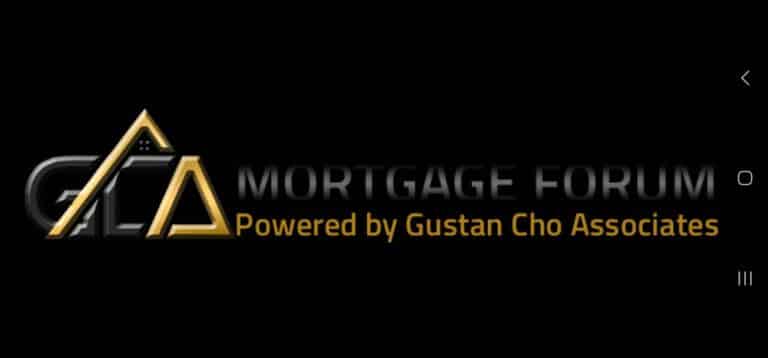Financing Contingency On Real Estate Purchase Contracts
Financing Contingency on Real Estate Purchase Contracts: What It Means and Why It Matters in 2025
In today’s competitive housing market, homebuyers are doing everything they can to stand out. One term you might hear a lot is financing contingency. Whether buying your first home or making an offer on a dream property, understanding what a financing contingency is and whether or not to waive it is critical. At Gustan Cho Associates, we help homebuyers navigate the mortgage process and understand their options, especially regarding real estate contingencies like the financing clause. Let’s break it all down into plain language.
Financing Contingency on Real Estate Purchase Contracts: 2025 Guide
If you’re buying a home, you’ve probably heard the term “financing contingency.” But what does it mean? And why is it so important?
A financing contingency is one of the most important protections a homebuyer can include in a real estate purchase contract. It can make or break your deal—and possibly save you thousands of dollars.
In this 2025 guide, we’ll walk you through everything you need to know about financing contingencies, how they work, why they matter, and what can go wrong without one.
What Is a Financing Contingency?
It is a condition written into your real estate purchase contract that protects you if your mortgage falls through. It gives you a set number of days to secure financing, usually through a mortgage loan. If you can’t get approved within that time, the contingency lets you walk away without losing your earnest money deposit. Why does this matter? Because getting a mortgage isn’t always guaranteed, especially in 2025, with rising rates, stricter underwriting, and market uncertainty.
How Long Does a Financing Contingency Last?
The time frame depends on what you and the seller agree on. Usually, the financing contingency lasts 21 to 30 days from the contract’s signing date. Some buyers may ask for shorter time frames to make their offer more competitive—especially in a hot market.
What Happens If You Miss the Deadline?
If the financing contingency expires and you haven’t secured a loan:
- The seller can cancel the contract.
- You may lose your deposit.
- You could be legally responsible for not following through.
To avoid this:
- Work closely with your loan officer.
- Submit all documents on time.
- Consider asking for an extension if needed.
Why Sellers Don’t Like Financing Contingencies?
In a seller’s market, many homes get multiple offers. Sellers often choose offers without a financing contingency because those offers look more certain to close. Here’s why sellers love offers without financing contingencies:
- Fewer delays or surprises.
- Lower chance of a canceled deal.
- More like a cash offer.
If you waive your financing contingency, you’re showing the seller you’re confident you’ll get approved and close the deal. But this move comes with risks.
What Happens If You Waive the Financing Contingency?
Let’s say you waive the financing contingency, and later, your mortgage application gets denied. What happens?
You lose your earnest money deposit. That could be thousands of dollars out of your pocket.
So, before waiving this clause, make sure you understand the risk. You could lose money and the home if your loan doesn’t close.
When Should You Consider Waiving the Financing Contingency?
You might consider waiving your financing contingency if you:
- Have already been fully underwritten (TBD property approval)
- Have a strong credit score
- Have low debt-to-income (DTI) ratios
- Have plenty of cash reserves
- Have a stable income and job history
At Gustan Cho Associates, we offer TBD Property Underwriting Approvals. This means you get fully approved by an underwriter before you find a home. The only thing left to approve is the property itself. This puts you in a much stronger position to safely waive your financing contingency.
Why Most Buyers Should Keep the Financing Contingency
If you possess any of the following financial characteristics, it’s wise to reconsider the decision to waive your financing contingency. These characteristics include low credit scores, high debt-to-income (DTI) ratios, limited savings or cash reserves, and a history of employment or payment issues. Waiving this clause can pose significant risks for buyers who may not meet the increasingly stringent loan requirements. As we approach 2025, lenders are adopting a more cautious approach to approvals amid economic uncertainty and fluctuations in interest rates, making it even more critical to assess your financial situation before making such a decision.
Other Common Contingencies You Should Know About
Financing isn’t the only thing you might put conditions on when buying a home. Here are a few other common contingencies:
- Home Inspection Contingency: This lets you back out or negotiate if the home has serious problems.
- Appraisal Contingency: Safeguards you in case the home’s appraisal is less than your bid.
- Sale of Existing Home Contingency: Gives you time to sell your current home first.
Like the financing contingency, each of these is meant to protect you. But waiving them may help you win a bidding war.
What Is an Appraisal Gap and Why It Matters
If you waive the appraisal contingency and the home doesn’t appraise high enough, you have to pay the difference out of pocket. This is called the appraisal gap.
The same logic applies to the financing contingency. If you waive it and your loan falls through, you must pay or walk away from your earnest money.
How to Make a Competitive Offer Without Waiving Protections
There are ways to stay competitive without taking on too much risk:
- Get a TBD full underwriting approval from Gustan Cho Associates
- Offer a larger earnest money deposit
- Shorten the contingency period (instead of waiving it entirely)
- Increase your down payment
- Include a personal letter to the seller
These strategies can strengthen your offer while keeping important protections in place, like your financing contingency.
2025 Market Update: Why Buyers Are Feeling Pressure
In 2025, we’re still seeing:
- Low housing inventory
- Higher mortgage rates
- Stricter underwriting guidelines
- Many cash buyers and investors
Because of this, many buyers feel pressure to waive contingencies to win a deal. But at Gustan Cho Associates, we believe in educating buyers so they can compete without taking unnecessary risks.
Should You Waive Your Financing Contingency?
Here are a few questions to ask yourself:
- Has your loan already been underwritten?
- Are you putting down more than 20%?
- Do you have extra funds to cover closing costs or a low appraisal?
- Are you confident in your employment and credit?
If you answer “yes” to most of these, you may be a good candidate for waiving your financing contingency.
If you answer “no,” don’t worry. We can help strengthen your offer without giving up important protections.
Final Thoughts: Work With a Lender That Backs You Up
The best way to make a strong offer—with or without a financing contingency—is to work with a lender who understands your full financial picture and gets your loan fully pre-approved upfront.
At Gustan Cho Associates, we help buyers get TBD full underwriting approvals so you can confidently make strong offers. You don’t have to go it alone or risk losing your deposit to stay competitive.
Ready to Compete Without the Risk?
Let’s discuss how to strengthen your offer with or without a financing contingency. Whether you’re buying your first home or your fifth, our team can help you get the mortgage you need quickly and confidently.
Call us at 800-900-8569 or email us at gcho@gustancho.com for a free consultation. You can also fill out our secure form online to get started today. Gustan Cho Associates is licensed to operate in 48 states, as well as in Washington, D.C., Puerto Rico, and the U.S. Virgin Islands.
Frequently Asked Questions About Financing Contingency:
Q: What is a Financing Contingency in a Home Purchase Contract?
A: It is a clause in your purchase contract that says your offer depends on you getting approved for a mortgage. If your loan is not approved, this clause helps you get your earnest money back and walk away from the deal.
Q: Why is a Financing Contingency Important when Buying a Home?
A: It is important because it protects you from losing money if your mortgage falls through. Without it, you could lose your deposit even if the loan gets denied.
Q: Can I Still Buy a House if I Waive the Financing Contingency?
A: Yes, you can. But if your loan gets denied after waiving it, you might lose your earnest money. That’s why it’s risky unless you’ve been fully approved by underwriting.
Q: Do Sellers Prefer Offers Without a Financing Contingency?
A: Yes, many sellers prefer offers without it because this makes the deal more likely to close. It also looks more like a cash offer and gives them peace of mind.
Q: Should I Waive the Financing Contingency to Win a Bidding War?
A: Only if you’re sure can you close on the loan. Waiving it is risky if you have credit issues, a high debt-to-income ratio, or unstable income. Always check with your loan officer first.
Q: What Happens if I Waive the Financing Contingency and My Loan is Denied?
A: If your loan is denied and you don’t have a financing contingency, you may lose your earnest money deposit. That could mean thousands of dollars gone.
Q: Who Should Not Waive Their Financing Contingency?
A: You should probably not waive your financing contingency if you have low credit, high monthly debt, or little savings or if you haven’t been fully approved by underwriting yet.
Q: How Can I Make a Strong Offer Without Waiving the Financing Contingency?
A: You can get a TBD full underwriting approval from Gustan Cho Associates, offer a bigger deposit, shorten the contingency time, or increase your down payment. These options help keep your financing contingency in place while making your offer stronger.
Q: What’s the Difference Between an Appraisal and a Financing Contingency?
A: An appraisal contingency protects you if the home value comes in low. A financing protects you if your mortgage doesn’t get approved. Both help reduce your risk as a buyer.
Q: How can Gustan Cho Associates Help with Financing Contingencies?
A: At Gustan Cho Associates, we offer TBD full underwriting approvals so you can feel confident making offers with or without a financing contingency. We guide you through every step to ensure you don’t take on more risk than necessary.








